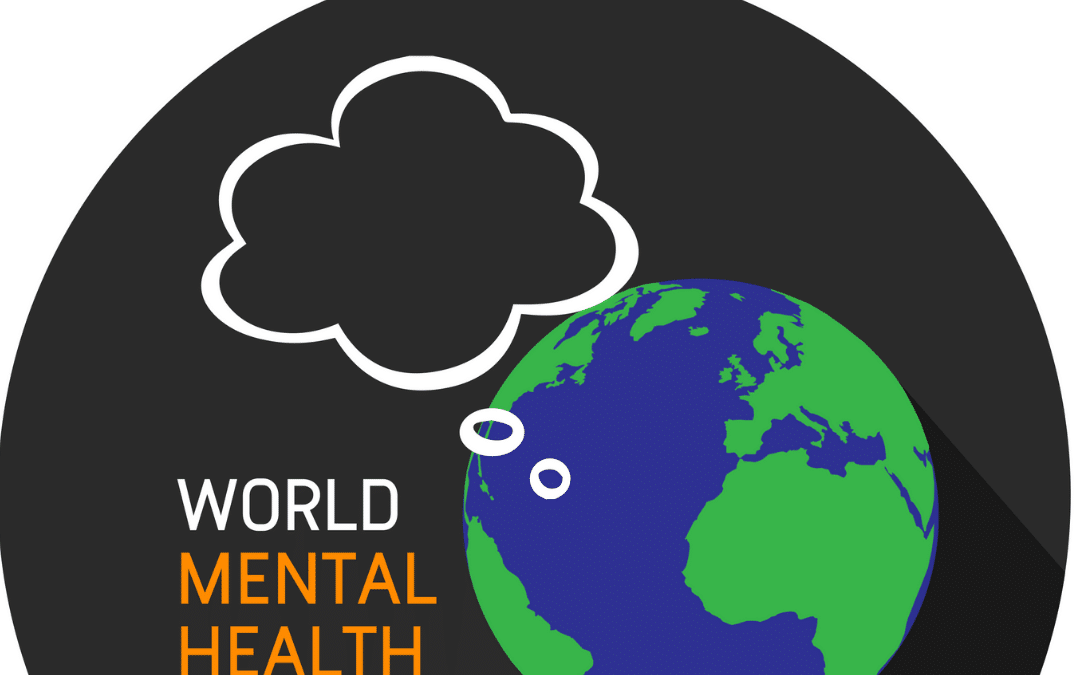Thank you to our client, Chakra Corporate Mental Strength Ltd for this weeks Guest Blog.
World Mental Health Day takes place on 10 October each year, and this year’s theme is ‘Mental Health in an Unequal World’1. The aim is to raise awareness of mental health issues across the globe, giving those working in this field a chance to share useful learnings. By working together, we can help to fuel future progress and better ways to support our family, friends and colleagues, who may be trying to cope with their mental health.
Our team of therapists at Chakra understands that it can be difficult to know what to do when you’re trying to support someone who’s struggling with mental health issues. Sadly, inequalities in society are having a detrimental impact on different communities when it comes to their mental health, and this includes factors such as ethnicity and poverty. If you’re concerned about someone with mental health issues who is at risk of inequality, we hope this article proves useful.
One in four people
This is the startling number of people who will experience a mental health problem at some point in their lifetimes (The Health & Safety Executive2). Inequalities in our society only serve to worsen existing mental health issues. But societal inequality is a broad and complex topic, and there is often a knock-on effect from one area of inequality to another, which can cause minor issues to spiral out of control.
27% increase in suicidal thoughts
This is the increase in young people from an ethnic minority experiencing suicidal thoughts during the pandemic, compared to an 18% increase for young white people.3 Where there is racial inequality there can often be a lack of cohesion between communities and local mental health support in terms of inclusive facilities and awareness. Where there is financial poverty, there can be a reduced level of physical fitness within a community, leading to an increase in mental health issues.
Over the past year, there has been a clear rise in health inequalities due to the pandemic, and never before has mental health been such a hot topic. According to the Health Foundation4, the true psychological impact of the pandemic is yet to be seen and its effects are still being studied5. At present, there’s a mixed picture in terms of those groups who have fared worse than others. When you add workplace stress to the mix, you have a potent recipe for serious mental health problems.
Inequalities and workplace pressures
Stress in the workplace can aggravate pre-existing mental health conditions, especially if someone is experiencing specific problems at work. With more than five years of experience in providing corporate mental health services, our team see these issues on a daily basis. We’ve seen first-hand how stressed employees can create a “ripple” effect amongst teams.
When you include the impact of redundancy and furlough and increased role pressures, for example, taking on a colleague’s job responsibilities, you start to see a complex picture.
Someone who may have previously been coping well with their mental health, could now suddenly find their issues becoming too much for them to handle alone, especially if they’re at risk of inequality.
As an employer, getting to grips with this important topic will enable you to make a positive difference in your own workplace. Whether work is the cause of a mental health issue or simply aggravating existing conditions, employers do have a legal responsibility to help their employees. But what can you do to raise awareness and create a more open environment for your colleagues?
Creating awareness in the workplace
We have observed that in some businesses an ethnically diverse workforce may not be equally represented in counselling and wellbeing opportunities, due to cultural stigmas and fears of judgement. Our onsite counselling sessions often reveal the barriers people have faced in accessing mental health support.
Education is the key to raising awareness, as well as encouraging open dialogue on this topic. If you have a diverse workforce, who may be experiencing inequality in one form or another, think about sensitive ways you can encourage them to voice their issues. This could be through one-off events, focusing on occasions such as World Mental Health Day.
You could create an internal desk-drop style marketing campaign, which provides useful tips and support to help employees with their mental health. Depending on the dynamic of your teams, which may vary, you could add this as a fixed agenda item for team meetings. You may decide to add this as a permanent item to be discussed in PDP (personal development plan) one-to-one meetings, where privacy may help to encourage honest conversations.
The current climate is a “perfect storm” for more vulnerable members of society with mental health problems who are at risk of inequality in our society. Employers should aim to measure the levels of risk to staff when it comes to both inequality and their mental health. If you decide you have employees at risk of developing work-related mental health issues, then it’s important to take steps towards removing or reducing this risk.
Workplace education and support will enable your staff to be more aware of their mental health, and there are various ways you can implement this within your organisation. For further advice on how to help employees who may have suicidal thoughts, read our recent blog, World Suicide Prevention Day: How to Help Someone You Know.
Please get in touch for more information on how our training courses and personal counselling will help you to support your colleagues.
Sources:
- https://www.who.int/campaigns/world-mental-health-day
- https://www.hse.gov.uk/stress/mental-health.htm
- https://www.health.org.uk/news-and-comment/charts-and-infographics/fairer-foundations
- https://www.health.org.uk/news-and-comment/blogs/the-unequal-mental-health-toll-of-the-pandemic
- https://www.york.ac.uk/media/economics/documents/hedg/workingpapers/2021/2101.pdf


